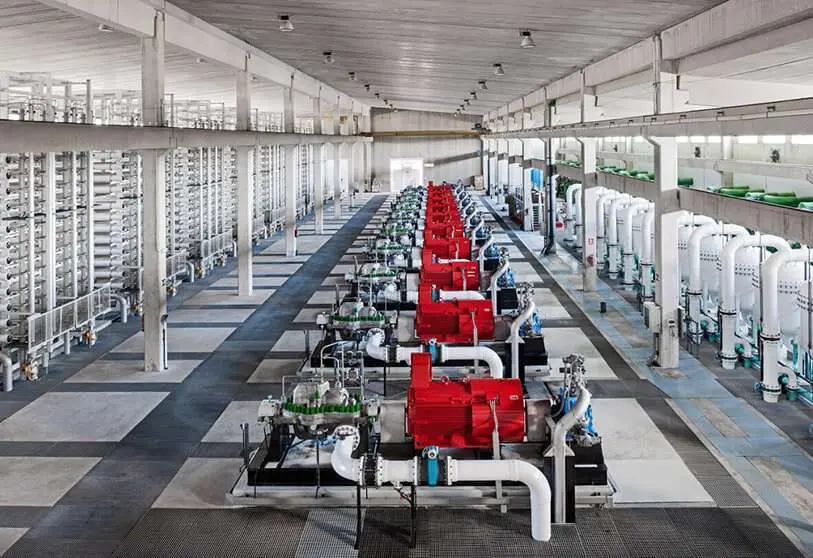Marruecos instala la mayor planta desalinizadora de agua de mar

Morocco has launched one of the projects that will bring most benefits to the Alawi kingdom. The North African nation is being involved in the construction of a new seawater desalination plant, which, when it is ready for use, will become the largest industry of its kind in the world.
The plant will occupy an area of 275,000 cubic metres. According to the Moroccan daily Morocco Business, "the capacity of the plant, which should come into service very soon, is 275,000 cubic metres, 150,000 for food consumption and 125,000 for irrigation of the 13,600 hectares of plantations located near Agadir per day during the first phase, with the prospect that this capacity could reach 400,000 cubic metres of desalinated water per day in the long term," the media outlet confirmed.

The Moroccan government has left the project in the hands of the Spanish company Abengoa, which will receive 4.41 billion dirhams for its creation. It will be in charge of the entire development of the drinking water factory for at least 27 years, plus all that its construction, maintenance, etc. entails. The choice of the firm is a good decision on the part of the executive, as it is a business with more than 30 years of experience in water management.
In Morocco, the company has been a pioneer in the renewable energy sector and is responsible for the installation of the world's first solar-gas hybrid power plant. This plant was inaugurated in 2010 and is located near the municipality of Ain Bni Mathar, on the outskirts of the city of Oujda. This project is capable of generating around 472 MW that feeds the North African nation's energy grid in a very efficient and clean way.
The desalination plant is part of an ambitious plan to avoid the problems caused by the country's drought at the beginning of the year. The Maghreb kingdom struggled to cope with one of the worst droughts, both in terms of lack of rainfall and groundwater shortages, in recent decades, which has led to numerous losses in sectors such as agriculture. The lack of water meant that farmers were unable to maintain crops that were to be harvested soon, while new crops could not be planted to compensate for the losses incurred.
Moroccan citizens were also affected by the measures taken to alleviate the crisis. They have suffered from supply cuts to improve water management, as well as various bans to prevent water from being wasted. Rural areas have been the hardest hit by the drought, even having to wait for water tankers to supply them with water.

The construction of this plant will help to prevent another shortage of drinking water supply to the Moroccan population. The Kingdom will finally be able to reduce the pressure on groundwater resources and thus manage the nation's water supply without the citizens suffering the consequences of shortages. Thus, the government of Aziz Akhannouch has framed this project within the National Drinking Water Supply and Irrigation Programme 2020-2027, which aims to diversify the sources of supply and security of the liquid.
It is a strategy in which the government has earmarked an investment of more than 117 million Moroccan dirhams. In addition to the construction of the desalination plant and the opportunity to install others in the Mediterranean and the Atlantic, it is the beginning of the exercise of the proper use of groundwater wells. It is also intended to build a total of 179 new large dams by 2027, as Morocco currently has 145 reservoirs. It is also expected to start reusing wastewater, previously purified, to irrigate fields and crops, among other activities, leaving the other resources for the personal use of the country's population








